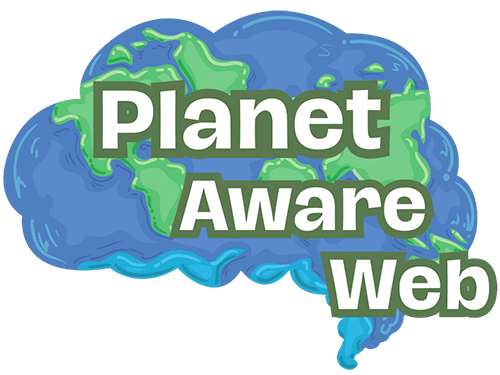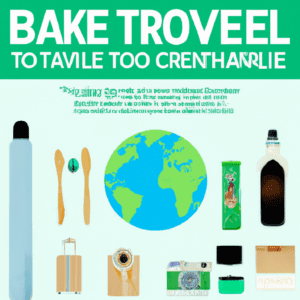In the world of fashion, there is a growing movement towards ethical and sustainable clothing. It’s no longer just about following the latest trends; it’s about making conscious choices that have a positive impact on the environment and workers’ rights. In this article, we will explore the concept of sustainable fashion and delve into the importance of discovering and supporting ethical clothing brands. By making informed choices, you have the power to contribute to a more sustainable and fair fashion industry.


Understanding sustainable fashion
What is sustainable fashion?
Sustainable fashion refers to the practice of producing clothing, accessories, and footwear in an environmentally and socially responsible manner. It encompasses various aspects of the fashion industry, including the materials used, the production processes employed, and the working conditions for laborers. Sustainable fashion encourages a shift towards a more conscious and ethical approach, aiming to minimize harm to the environment while promoting fair treatment of workers throughout the supply chain.
The importance of sustainable fashion in today’s world
In today’s world, sustainable fashion has become increasingly important due to the detrimental effects of fast fashion on the environment and society. As consumers become more aware of the consequences of their choices, there has been a growing demand for alternatives that prioritize sustainability. Sustainable fashion offers an opportunity to reduce carbon emissions, minimize waste, and conserve natural resources. It also promotes social justice by ensuring fair wages and safe working conditions for garment workers. By embracing sustainable fashion, we can contribute to a better future for both people and the planet.
How sustainable fashion differs from fast fashion
Sustainable fashion and fast fashion are two contrasting approaches to the fashion industry. Fast fashion focuses on quick production, low prices, and frequent turnover of clothing styles, resulting in a high demand for cheaply made garments. This approach often leads to exploitation of labor, environmental degradation, and a throwaway culture where clothing is discarded after minimal use. Sustainable fashion, on the other hand, emphasizes durability, timeless designs, and ethical practices. It aims to create a more sustainable and responsible fashion ecosystem that considers the entire lifecycle of a garment, from production to disposal.
The negative impacts of fast fashion
Environmental consequences of fast fashion
Fast fashion has severe environmental consequences. The production of clothing requires vast amounts of resources, including water, energy, and chemicals. The use of synthetic fibers, such as polyester, contributes to the release of microplastics into water bodies during washing. Additionally, the high demand for clothing leads to increased carbon emissions from transportation and landfill waste. Fast fashion also perpetuates a cycle of overconsumption, where clothing is discarded after minimal use, contributing to the growing problem of textile waste.
Exploitation of labor in the fast fashion industry
The fast fashion industry often relies on exploitative labor practices to achieve high production volumes at low costs. Many garment workers, particularly in developing countries, are paid minimal wages and forced to work in unsafe conditions. The lack of worker’s rights, such as fair wages, safe working hours, and adequate social protections, are prevalent issues throughout the fast fashion supply chains. Exploitation of labor not only violates human rights but also perpetuates a cycle of poverty and inequality.
Economic implications of fast fashion
While fast fashion may appear to bring economic benefits through its low-priced clothing, it has detrimental effects on local economies in the long run. The focus on cheap and disposable clothing often leads to the closure of small-scale local textile producers and manufacturers. This, in turn, results in job losses and a decline in traditional textile and craftsmanship skills. The dominance of fast fashion brands also hinders fair competition and inhibits the growth of sustainable and ethical alternatives in the industry.
Health hazards associated with fast fashion
Fast fashion often involves the use of toxic chemicals during production, which can have adverse effects on the environment and human health. Workers exposed to these chemicals may suffer from respiratory problems, skin irritations, and other illnesses. Moreover, the low-quality materials used in fast fashion garments can cause allergic reactions and skin sensitivities in the consumers. The irresponsible disposal of clothing made with hazardous chemicals further contributes to pollution, impacting both ecosystems and human well-being.
Why choose ethical clothing brands
Ethical considerations in the fashion industry
Choosing ethical clothing brands means considering the social and environmental impact of the garments we purchase. Ethical brands prioritize fair labor practices, ensuring that their workers are paid fair wages, work in safe conditions, and are provided with social benefits. They also prioritize sustainability by using eco-friendly materials, adopting responsible production methods, and minimizing waste throughout the supply chain. By supporting ethical clothing brands, we can make a positive difference and contribute to a more just and sustainable fashion industry.
Benefits of supporting ethical clothing brands
Supporting ethical clothing brands not only aligns with our values but also offers numerous benefits. Firstly, ethical brands tend to prioritize quality over quantity, resulting in well-made garments that last longer. This approach encourages a shift towards a more sustainable and durable fashion culture, reducing the need for frequent purchases. Secondly, ethical brands often collaborate with local artisans and craftsmen, promoting traditional skills and cultural heritage. By supporting ethical brands, we can help preserve these valuable traditions and ensure their continuation.
Promoting fair trade and workers’ rights
Ethical clothing brands often prioritize fair trade practices and support workers’ rights across their supply chains. They collaborate with independent producers, cooperatives, and artisans, ensuring that they receive fair compensation for their work. By supporting these brands, we contribute to the promotion of fair trade principles, which empower communities and foster sustainable development. Ethical fashion encourages a system where each worker’s contribution is valued, enabling them to lead a more dignified and fulfilling life.
Reducing environmental footprint
Ethical clothing brands recognize the environmental impact of the fashion industry and take steps to reduce their ecological footprint. They use sustainable materials, such as organic cotton, bamboo, and recycled fibers, which have lower environmental impacts compared to conventional materials. Ethical brands also prioritize responsible production methods, including water and energy conservation, waste reduction, and carbon footprint reduction. By choosing ethical clothing brands, we support these sustainable practices and contribute to a cleaner and healthier planet.
Ensuring quality and durability
One significant advantage of ethical clothing brands is their focus on producing high-quality garments that are built to last. By prioritizing durability and timeless designs, ethical brands create clothing that can withstand regular wear and tear, reducing the need for frequent replacement. This emphasis on quality not only saves consumers money in the long run but also minimizes the environmental impact associated with the production and disposal of low-quality fast fashion items. Choosing ethical brands allows us to invest in pieces that will stand the test of time, both in terms of style and durability.
Criteria for identifying ethical clothing brands
Transparency in the supply chain
Ethical clothing brands prioritize transparency and provide information about their supply chains. They are open about where their garments are made, the materials used, and the production processes involved. Transparent brands often have certifications and partnerships with organizations that verify their ethical practices. By choosing brands that are open and honest about their supply chains, consumers can make informed decisions and support companies that uphold sustainable and ethical values.
Labor practices and fair wages
Ethical clothing brands prioritize the fair treatment of workers. They pay fair wages, ensure safe working conditions, and provide workers with the necessary social protections. These brands often have certifications, such as Fair Trade or WRAP (Worldwide Responsible Accredited Production), which guarantee the adherence to fair labor practices. By supporting brands that prioritize fair wages and working conditions, we can contribute to the improvement of labor rights in the fashion industry.
Use of sustainable materials
A key characteristic of ethical clothing brands is their use of sustainable materials. These brands opt for environmentally friendly fabrics such as organic cotton, hemp, linen, and lyocell. They may also incorporate recycled materials into their production processes. By choosing brands that prioritize sustainable materials, we help reduce the demand for resource-intensive and polluting conventional materials, thereby promoting a more sustainable fashion industry.
Production methods and carbon footprint
Ethical clothing brands prioritize responsible production methods. They focus on minimizing environmental impacts by reducing water and energy consumption, implementing waste reduction strategies, and adopting innovative production techniques. They may also offset their carbon emissions or prioritize local production to reduce transportation-related emissions. By supporting brands with low carbon footprints, we contribute to a greener and more sustainable fashion industry.
Certifications and third-party verifications
Ethical clothing brands often have certifications or third-party verifications that validate their sustainable and ethical practices. Look for certifications such as Global Organic Textile Standard (GOTS), Fair Trade, and OEKO-TEX Standard 100, which ensure that the garments meet certain environmental and social criteria. These certifications provide assurance that the brand’s claims align with sustainable and ethical standards. By choosing brands with recognized certifications, we can make more confident and informed decisions about our purchases.


Top ethical clothing brands to explore
Brand A: Sustainable materials and fair trade practices
Brand A is known for its commitment to sustainable materials and fair trade practices. They prioritize organic cotton and recycled fibers in their collections and ensure fair wages and safe working conditions for their workers. Brand A also actively engages in partnerships with artisans and cooperatives, supporting their traditional craftsmanship. With their transparent supply chain and dedication to environmental and social responsibility, Brand A is a reliable choice for those seeking ethical clothing.
Brand B: Transparent supply chain and eco-friendly initiatives
Brand B stands out for its transparent supply chain and dedication to eco-friendly initiatives. They provide detailed information about the production processes, materials used, and the environmental impact of their garments. Brand B actively seeks to reduce their carbon footprint and waste generation, employing innovative solutions such as recycling and upcycling. Their commitment to transparency and sustainability makes them a trustworthy option for conscious consumers.
Brand C: Socially responsible production and community engagement
Brand C is renowned for its socially responsible production practices and community engagement. They prioritize fair wages and safe working conditions throughout their supply chain, ensuring the well-being of their workers. Brand C also supports various community development projects and promotes initiatives that empower local communities. Their commitment to social responsibility and community engagement makes them a meaningful choice for those who prioritize both ethical fashion and social impact.
Brand D: Innovative recycling and upcycling initiatives
Brand D distinguishes itself through its innovative recycling and upcycling initiatives. They actively collect post-consumer textiles and repurpose them into new garments, reducing waste and conserving resources. Brand D promotes a circular economy by designing versatile and timeless pieces that can be easily updated or repaired. Their commitment to recycling and upcycling sets them apart as a sustainable brand that prioritizes resource efficiency and waste reduction.
Brand E: Commitment to animal welfare and cruelty-free practices
Brand E is dedicated to animal welfare and cruelty-free practices. They avoid using materials derived from animals, such as fur, leather, and silk, and instead opt for ethical alternatives like plant-based and synthetic materials. Brand E ensures that their production processes do not harm animals and actively supports initiatives that promote animal rights. For those who value cruelty-free fashion, Brand E offers a range of stylish and ethical options.
Tips for discovering ethical clothing brands
Researching online and reading reviews
One of the easiest ways to discover ethical clothing brands is by researching online and reading reviews. There are several websites and platforms dedicated to showcasing sustainable and ethical fashion brands, providing valuable information and reviews. Take the time to explore these resources, read about different brands’ missions and practices, and learn from other consumers’ experiences. By conducting thorough research, you can make informed decisions and find brands that align with your values.
Local and independent designers
Supporting local and independent designers is another way to discover ethical clothing brands. These designers often prioritize sustainability and fair labor practices, and their smaller scale allows for more personalized and transparent production processes. Attend local fashion events, visit independent boutiques, and explore local markets to discover unique and conscious fashion brands in your area. By supporting local talent, you can contribute to the growth of sustainable fashion in your community.
Attending sustainable fashion events and fairs
Attending sustainable fashion events and fairs is a great way to discover ethical clothing brands. These events bring together designers, artisans, and industry experts who prioritize sustainability and ethics. Explore the collections, engage with the brands, and learn more about their practices and values. Sustainable fashion events also often include panel discussions, workshops, and exhibitions that educate and inspire attendees. By immersing yourself in these events, you can deepen your understanding of sustainable fashion and discover new ethical brands to support.
Collaborations with sustainable influencers and bloggers
Following sustainable influencers and bloggers can lead to the discovery of ethical clothing brands. Influencers and bloggers often share their favorite sustainable brands, provide styling tips, and offer insights into the industry. By engaging with their content, you can gain valuable recommendations and discover brands that resonate with your personal style and values. Collaborations between influencers and sustainable brands also help raise awareness and promote the importance of ethical fashion to a broader audience.


Supporting ethical clothing brands
Making informed purchasing decisions
To support ethical clothing brands, it is essential to make informed purchasing decisions. Take the time to research the brand’s practices, read reviews, and educate yourself about the impact of your choices. Prioritize brands that align with your values and provide transparency about their supply chains and production processes. By making conscious purchases, you can contribute to the growth of ethical fashion and drive positive change in the industry.
Choosing quality over quantity
One of the fundamental principles of supporting ethical clothing brands is choosing quality over quantity. Invest in well-made garments that are designed to last, rather than giving in to the temptations of fast fashion’s fleeting trends. By prioritizing quality, you build a sustainable and timeless wardrobe that reduces the need for frequent replacements. Quality garments also often have a higher resale value, allowing you to recoup some of the investment and extend the lifespan of the clothing even further.
Reusing, recycling, and upcycling clothing
Supporting ethical clothing brands goes beyond just purchasing their products. Embrace sustainable fashion practices such as reusing, recycling, and upcycling clothing. Extend the lifespan of your garments by repairing them when needed and exploring different styling options. If a garment no longer suits your style, consider donating it to local charities or swapping it with friends. When it is time to say goodbye to a piece of clothing, prioritize responsible disposal by recycling or upcycling it to give it new life.
Spreading awareness and advocating for ethical fashion
Supporting ethical fashion extends beyond individual actions. Become an advocate for ethical fashion by spreading awareness and promoting the importance of conscious choices. Share your experiences with ethical brands and educate others about the environmental and social impacts of fast fashion. Encourage friends and family to consider ethical alternatives and support sustainable fashion initiatives. By raising awareness and advocating for change, we can collectively work towards a more sustainable and ethical fashion industry.
Challenges in the ethical fashion industry
High price points and limited accessibility
One of the challenges in the ethical fashion industry is the perception that sustainable and ethical clothing comes with a high price tag. Due to the emphasis on fair labor practices and sustainable materials, ethical brands often face higher production costs, which are reflected in their prices. Additionally, limited accessibility to physical stores or online platforms may make it difficult for consumers to access a wide range of ethical options. However, as demand for ethical fashion grows, more affordable and accessible alternatives are beginning to emerge.
Greenwashing and misleading marketing claims
Greenwashing is another challenge faced by the ethical fashion industry. Some brands may use misleading marketing claims and vague terminology to give the impression of sustainability without truly adhering to ethical practices. This can make it challenging for consumers to differentiate between genuine ethical brands and those engaging in greenwashing. It is crucial to look for certifications and third-party verifications to ensure that brands’ claims are valid and backed by recognized standards.
Need for more widespread adoption and awareness
While the ethical fashion movement is gaining momentum, there is still a need for more widespread adoption and awareness. Many consumers are unaware of the social and environmental impact of their fashion choices and may prioritize affordability and trends over sustainability. Education and awareness campaigns play a crucial role in informing consumers about the benefits of ethical fashion and inspiring them to make conscious choices. Continued efforts to promote ethical fashion, both at the individual and societal levels, are necessary for lasting change.


Collaborations and initiatives for change
Fashion Revolution and their global campaigns
Fashion Revolution is an organization that leads global campaigns to promote transparency and ethical practices in the fashion industry. Their annual Fashion Revolution Week encourages consumers to ask brands, “Who made my clothes?” and advocates for greater supply chain transparency. Fashion Revolution also works towards systemic change through initiatives such as the Fashion Revolution Transparency Index, which assesses and ranks brands based on their transparency. By supporting Fashion Revolution and participating in their campaigns, individuals can contribute to the movement towards a more ethical and transparent fashion industry.
Sustainable fashion collaborations with major brands
Collaborations between sustainable fashion brands and major brands can drive significant change in the industry. By working together, these collaborations create opportunities for ethical brands to reach a broader audience and raise awareness about sustainable practices. Major brands also benefit from the expertise and values of sustainable fashion brands, enabling them to improve their own sustainability efforts. Collaborations encourage the fashion industry as a whole to prioritize ethical practices, inspiring positive change on a larger scale.
Government policies and regulations towards ethical fashion
Government policies and regulations play a crucial role in promoting ethical fashion. Some countries have implemented legislation to enforce fair labor practices, protect workers’ rights, and regulate the use of hazardous chemicals in the fashion industry. Governments can also provide incentives and support for sustainable fashion initiatives, research, and development. By implementing and enforcing ethical fashion regulations, governments can contribute to a more sustainable and responsible fashion industry.
The future of ethical clothing
Growing consumer demand for ethical fashion
The future of ethical clothing looks promising, as there is a growing consumer demand for sustainable and ethical fashion. Increasing awareness of the environmental and social impact of the fashion industry has led to a shift in consumer preferences, with more individuals seeking out ethical alternatives. This demand creates opportunities for the growth of ethical brands and encourages traditional fashion brands to adopt more sustainable practices. As ethical fashion becomes more mainstream, it has the potential to reshape the entire fashion industry.
Innovation and technology in sustainable textiles
Innovation and technology are key drivers in the development of sustainable textiles. Researchers and designers are exploring alternative materials, such as biodegradable fabrics, bio-based fibers, and lab-grown textiles. These innovations not only reduce the reliance on resource-intensive materials but also offer the potential for cleaner and more sustainable production processes. Technology also plays a role in improving supply chain transparency and traceability, enabling consumers to make more informed choices. As technology continues to advance, the future of sustainable textiles looks promising.
Education and awareness towards conscious fashion choices
Education and awareness are essential for the future of ethical clothing. By incorporating sustainability and ethics into fashion education programs, future designers, industry professionals, and consumers can develop a deeper understanding of the importance of conscious fashion choices. Additionally, ongoing awareness campaigns, initiatives, and collaborations between various stakeholders can continue to educate and inspire individuals to make more ethical fashion choices. Through education and awareness, the future of ethical clothing can be shaped by a more informed and conscious society.
In conclusion, understanding sustainable fashion is crucial in today’s world as we navigate the negative impacts of fast fashion. By choosing ethical clothing brands, we support fair labor practices, reduce environmental footprints, and prioritize durability and quality. Identifying ethical clothing brands can be done by considering transparency in supply chains, fair labor practices, sustainable materials, production methods, and certifications. Explore the top ethical clothing brands, seek out local and independent designers, and attend sustainable fashion events. Supporting ethical clothing brands involves making informed purchasing decisions, choosing quality over quantity, reusing and recycling clothing, and spreading awareness. Despite challenges in the industry, collaborations, initiatives for change, and growing consumer demand pave the way for a future of ethical clothing. With innovation, education, and awareness, we can transform the fashion industry and make conscious fashion choices that benefit both people and the planet.













